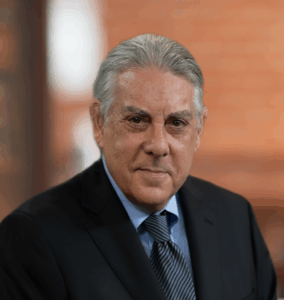![]()
By Jeffrey Freedman
As seen in The South Florida Sun Sentinel on September 29, 2025

Jeffrey Freedman
“One Big Beautiful Bill” contains a lot of numbers — significantly, $1 trillion in cuts to Medicaid. Behind those numbers are Americans trying to care for themselves and each other, maintain basic levels of health, and qualify for Medicaid coverage.
As the managing attorney of a law firm, I am well acquainted with numbers and budgets. As a claimants representative for Social Security Disability (SSD) and Supplemental Security Income (SSI) for more than 40 years, I am also well acquainted with Americans who live with disabilities and struggle with housing and food insecurity in addition to health issues.
Congress timed the Medicaid cuts to begin after midterm elections, hoping voters would not see the cuts’ effects until post election. But the pain will be so deeply felt at so many levels, we should all know what is coming.
About 12 million people will lose health care coverage over the next 10 years. The “able-bodied” on Medicaid will have to work, go to school or volunteer 80 hours per month — documented twice yearly. There are many unknowns. Will SSI beneficiaries (who get Medicaid) have to repeatedly prove they cannot work? Will it be more difficult for new applicants to get benefits because Medicaid funds are short?
The Kaiser Family Foundation (KFF) says Medicaid provides more than half of the $415 billion spent on long-term care. When federal funds disappear, states will have to keep nursing homes, senior day care centers, and in-home care providers functioning. Hospitals, particularly rural ones, are heavily funded by Medicaid. Planned Parenthood will be cut. Poor women will be unable to get contraception, cancer screenings, wellness exams or other preventative care.
“Numbers” represent people — taxpayers relying on government programs when they cannot work or have a disabled child who will never work. The budget bill takes support away from these people.
This seems inordinately cruel. I and my colleagues witness the struggles of the poor daily. Life has fixed expenses, and health care is one. Medicaid cuts shift major costs to states and local governments and pull the rug out from under those needing care.
Americans should prepare for higher local and state taxes and declines in local services. They will see less fortunate neighbors struggle to get medical treatments and medications. Rural hospitals and nursing homes will be understaffed, many will close. According to University of Pennsylvania, Harvard and Yale researchers, 51,000 more people will die each year.
That’s a lot of “numbers” — human beings whose lives will dramatically change — because our government cut health care so billionaires could get a tax break.
